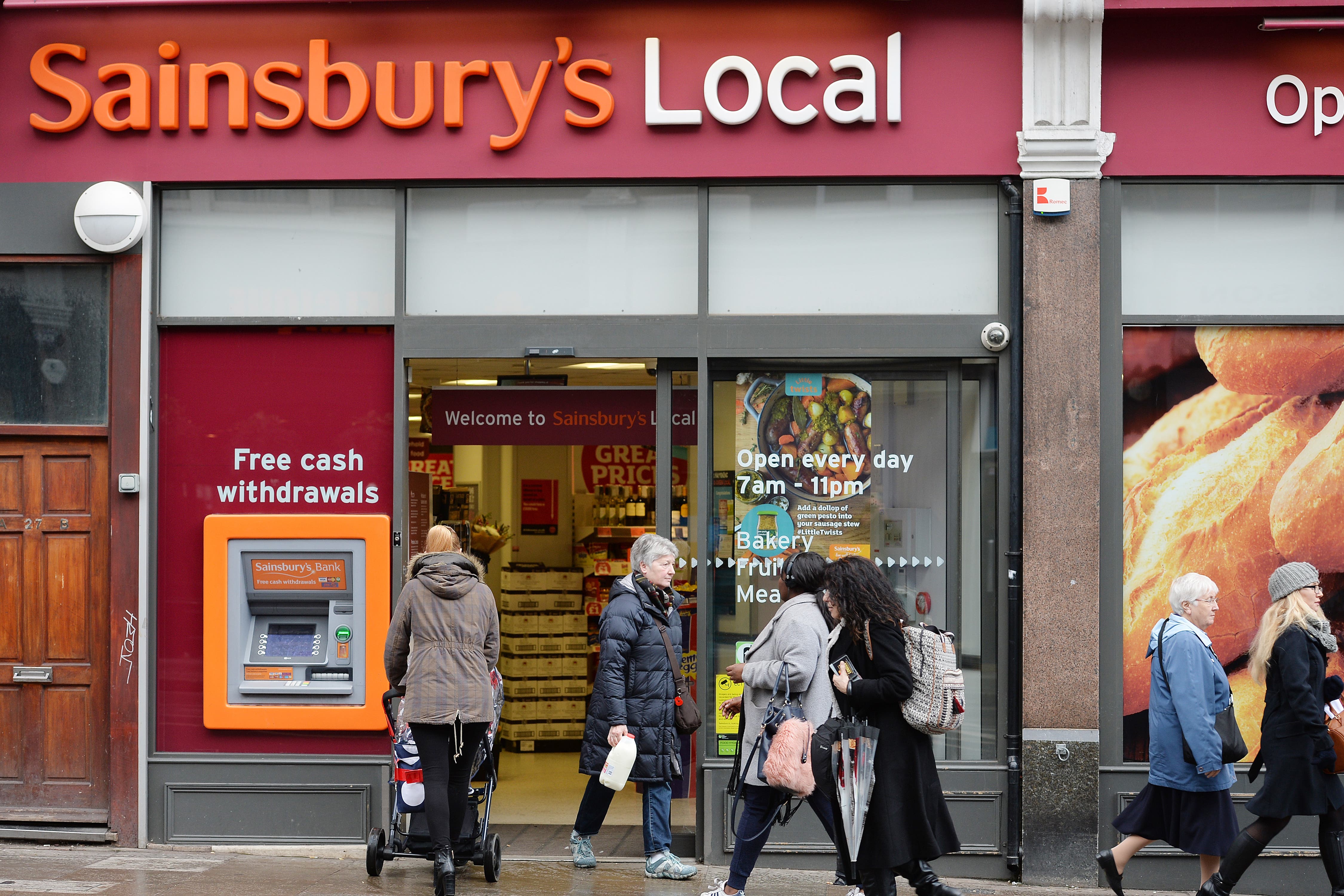Consumers ‘could pay up to a fifth more for convenience store groceries’
More than half of consumers shop at convenience stores at least once a week, a survey for Which? found.

Your support helps us to tell the story
From reproductive rights to climate change to Big Tech, The Independent is on the ground when the story is developing. Whether it's investigating the financials of Elon Musk's pro-Trump PAC or producing our latest documentary, 'The A Word', which shines a light on the American women fighting for reproductive rights, we know how important it is to parse out the facts from the messaging.
At such a critical moment in US history, we need reporters on the ground. Your donation allows us to keep sending journalists to speak to both sides of the story.
The Independent is trusted by Americans across the entire political spectrum. And unlike many other quality news outlets, we choose not to lock Americans out of our reporting and analysis with paywalls. We believe quality journalism should be available to everyone, paid for by those who can afford it.
Your support makes all the difference.Consumers who buy their food at convenience stores could be paying up to a fifth more than at larger branches of the same supermarket, according to a study.
Which? compared the cost of 42 popular grocery items at convenience chains Morrisons Daily, Sainsbury’s Local and Tesco Express against prices at their full-sized supermarkets on three occasions in June and July, also checking loyalty scheme discounts.
It found the biggest price difference for the basket was at Morrisons Daily, where shoppers paid 21% more on average for the same groceries than at a Morrisons supermarket.
A 400g tin of own-label chickpeas was 104% more expensive at the convenience store – £1 in comparison to 49p at the supermarket – while a 165g tub of Philadelphia soft cheese cost 63% more at £2.58 compared with £1.58 at the supermarket.
Sainsbury's Local stores, which tend to be located in city or town centre locations, often have higher operating costs relative to their size, such as rents and business rates.
The total cost of the basket of groceries at Morrisons Daily averaged £16 more, which could set consumers back a total of £832 more over the course of the year if they bought the same products once a week, Which? warned.
Three products were discounted for loyalty scheme members in Morrisons’ bigger stores but not at its convenience stores, meaning the average price difference for cardholders would have been slightly higher at 22%.
Which? found that while Sainsbury’s and Tesco had fewer variations in their prices between convenience stores and larger stores, Sainsbury’s Nectar members could still be paying an average of 14% more on average at Sainsbury’s Local, while Clubcard holders could be paying 11% more at Tesco Express.
Despite Tesco Express stores offering Clubcard prices, a pack of six Mr Kipling Bakewell Slices was £2.32 on average at Tesco Express but £1.50 at Tesco supermarkets – a 54% difference.
A 500g bag of own-label fusilli was 31% or 20p cheaper at a larger Sainsbury’s supermarket at 65p instead of 85p.
In total, the basket of 42 groceries averaged around £11 more at Sainsbury’s Local and £10 more at Tesco Express for loyalty scheme members compared to their prices at the larger stores, adding up to more than £500 over a year.
All three supermarket convenience stores charged 8% more for two pints of own-label semi-skimmed milk – with or without a loyalty card.
A medium white Hovis loaf cost 12% more at both Sainsbury’s Local and Tesco Express, and 14% more at Morrisons Daily.
However, at Morrisons Daily a 180g bag of Doritos Cool Original tortilla chips was 15% cheaper, a one litre bottle of Robinsons orange squash was 25% less and Kenco Millicano instant coffee was 32% cheaper.
Clubcard holders paid 14% less on average for a five-pack of Nature Valley cereal bars at Tesco Express and 6% less for a 460g bottle of Heinz Tomato ketchup.
More than half of respondents in a survey by the watchdog shopped at convenience stores at least once a week, and used supermarket-branded options most often.
Which? Retail editor Ele Clark said: “Unfortunately, many people are without easy access to transport or online deliveries which leaves them reliant on smaller nearby stores.
“Convenience stores may often be easier to travel to and handy for shoppers who need to stock up on a few essentials, but people who have to use them regularly will be spending significantly more over the course of a year than those with access to larger supermarkets.
“Sainsbury’s, Morrisons and Tesco have committed to offer a broader range of budget and lower-priced ranges in their convenience stores as a result of Which? campaigning, but this latest research shows that more can still be done to increase the range of affordable product options for those consumers who rely on convenience stores.”
A Sainsbury’s spokeswoman said: “There may be price differences between convenience stores and supermarkets. This is because our Sainsbury’s Local stores, which tend to be located in city or town centre locations, often have higher operating costs relative to their size, such as rents and business rates.”
Morrisons said: “We’re always working hard to keep prices down and competitive for our customers while maintaining high standards and availability in all our stores. Last year, we became the first supermarket to introduce our budget ‘Savers’ range into Morrisons Daily stores nationwide.
“We know our customers and business partners would like to see the More Card accepted in Morrisons Daily stores, so we are actively working on introducing the offer into our convenience estate in the coming months.”